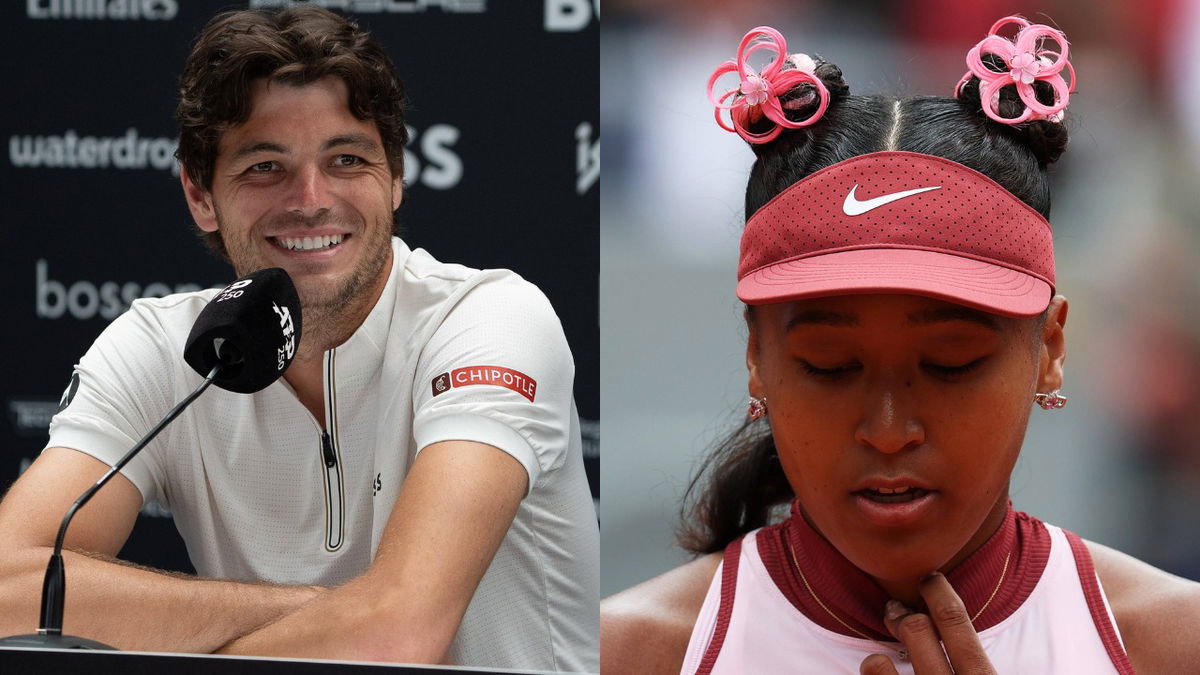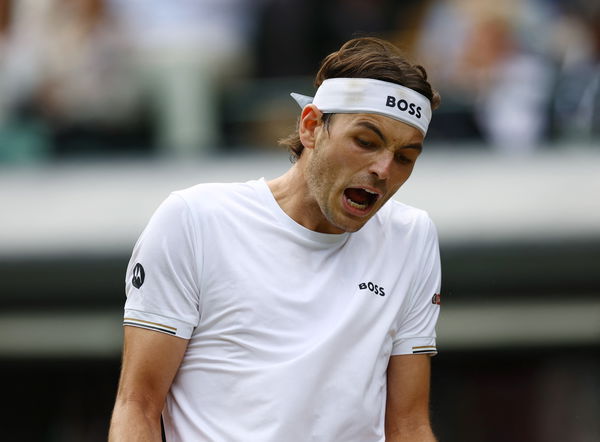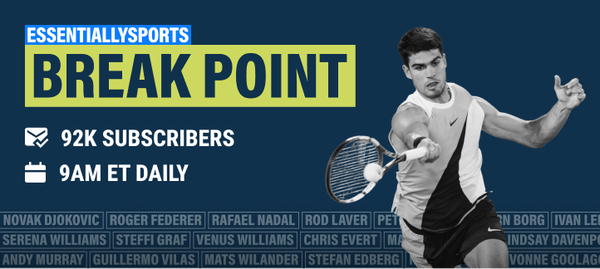Jun 16, 2025 | 10:14 AM EDT

Imago
Image credit: imago

Imago
Image credit: imago

Imago
Image credit: imago

Imago
Image credit: imago
“I think we can almost universally agree that each of us is a human being and subject to feelings and emotions”, those raw words from Naomi Osaka back in 2021 still ripple through the soul of tennis today. Professional players are more than just points and rankings; they carry a world of pressure on their shoulders. And now, from the ATP side, Taylor Fritz steps forward with his dramatic twist. Fresh from triumph at the Bose Open, Fritz opened up about his unpopular opinion on seeing a psychologist, adding a powerful voice to the conversation and proving that vulnerability and strength can, indeed, serve as doubles partners. Wondering what the former US Open finalist said?
Watch What’s Trending Now!
Taylor Fritz’s battle with mental health isn’t a hidden story; it’s a raw, thunderous journey filled with hard choices and powerful revelations. Last year, the 2022 Indian Wells champion made a dramatic move by quitting the popular video game ‘FIFA’, choosing peace of mind over pixelated competition. The pressure of losing online games was getting to him, so he decided to take a break to protect his mental health. And it’s not just the controller that fell from his hands; in 2023, Fritz opened up about not loving to watch much tennis at all. “I don’t really like watching tennis too much. If I watch, then it’s more just like I’m watching the person that I’m playing next and trying to just pick up on some things, do some scouting.”
Now, as Wimbledon looms large and the world tunes in, the 4th seed is letting his true thoughts fly, turning up the volume on a crucial conversation.

Reuters
Tennis – Wimbledon – All England Lawn Tennis and Croquet Club, London, Britain – July 10, 2024 Taylor Fritz of the U.S. reacts during his quarter final match against Italy’s Lorenzo Musetti REUTERS/Hannah Mckay
In a raw, thunderous confession at the “Tennis Insider Club,” Taylor Fritz opened up like never before, letting the world in on his unfiltered view of pressure, doubts, and the psyche of a warrior. “This is, maybe this is something that’s a, I don’t know if there’s probably an unpopular opinion. But in my mind, when it comes to like dealing with pressure on the court and playing and all this stuff, I’ve always thought it’s something you either just like have or you don’t have.”
For Fritz, battling pressure isn’t about sitting in a therapist’s office; it’s about having lived through it. “And I’ve never understood how someone can, that hasn’t been in these like situations. You know, I’d be down, I’d, you know, I would talk to someone who is an accomplished player who knows exactly the feelings that I’m talking about.”
The American also challenged the notion that a psychologist could illuminate a path forward. “But someone like a, like a psychologist or something. Yeah. It’s very hard for me to believe how they’re gonna tell me, how to handle this situation. Better than someone who, you know, as someone who hasn’t been there, so.” It’s like to him, phrases like “relax” and “breathe” from outsiders are a weak chorus, a simplistic view of a dramatic showdown.
Fritz later insisted it’s more about internal fortitude than techniques handed down from an external voice. “You know, I feel like they’re gonna tell me to like, relax and, and breathe. And like, I don’t know. I’ve, always been had the belief that it’s something that you can’t really teach. You can maybe work on it, you can maybe work on it and get a little bit better.”
He later summed it up with a piercing observation about the “placebo” of believing you’re improving just because you’re trying something different. “But in my mind, that’s also a bit of a, what’s the word? I am blanking on the word, but the word for it, but like when someone tells you something and you believe it, placebo. I feel like it’s a bit of placebo effect of where it’s like, maybe you’ll just do better because, you think you’ve like, talked to someone and you like, you think you’ll handle the situation better.”
And while the 27-year-old opened up his soul on this, he made sure to dismiss Novak Djokovic’s opinion of on-court coaching with a blistering, uncompromising verdict!
Taylor Fritz blasts Novak Djokovic’s view about on-court coaching
This year’s Australian Open introduced a thrilling new element to the sport’s long and storied history. Coaches were no longer distant figures hidden in the stands; now they were close enough to feel every pulse of the match from the sidelines. The debut of “coaching pods”, seats for up to four team members in two corners of the court, opened up a world of possibilities. Players like Novak Djokovic hopped across the court to confer with his ex-coach, Andy Murray, adding a wild twist to the sport’s rich narrative.
But Taylor Fritz was having none of it. “Oh, yeah. It’s awful,” he added without holding back. “I understand it. I think it’s bad for the game; the game of tennis, it’s definitely bad, but for, like, fans and stuff, if there’s a way to, like, hear what you’re saying to your coach, if fans could hear that stuff, maybe that’s more entertaining, but we don’t even do that anyways.”
It’s a mental match for him, a battle of wits against his opponent across the net. “And obviously, I talk to my coach during matches, you can, but I don’t think I’m ever talking to him asking him, like, what do I do? I’m telling him what I see and what I think. And then he’s almost just more so like giving me confirmation. It’s almost like a second opinion of I tell him what I see and he’s like, I agree and then I can feel more confident in kind of what I was already thinking,” he added.
Now, with a grass-court trophy already resting in his hands from the Boss Open, the big question hangs in the air: Is Fritz on a path toward Wimbledon glory?



